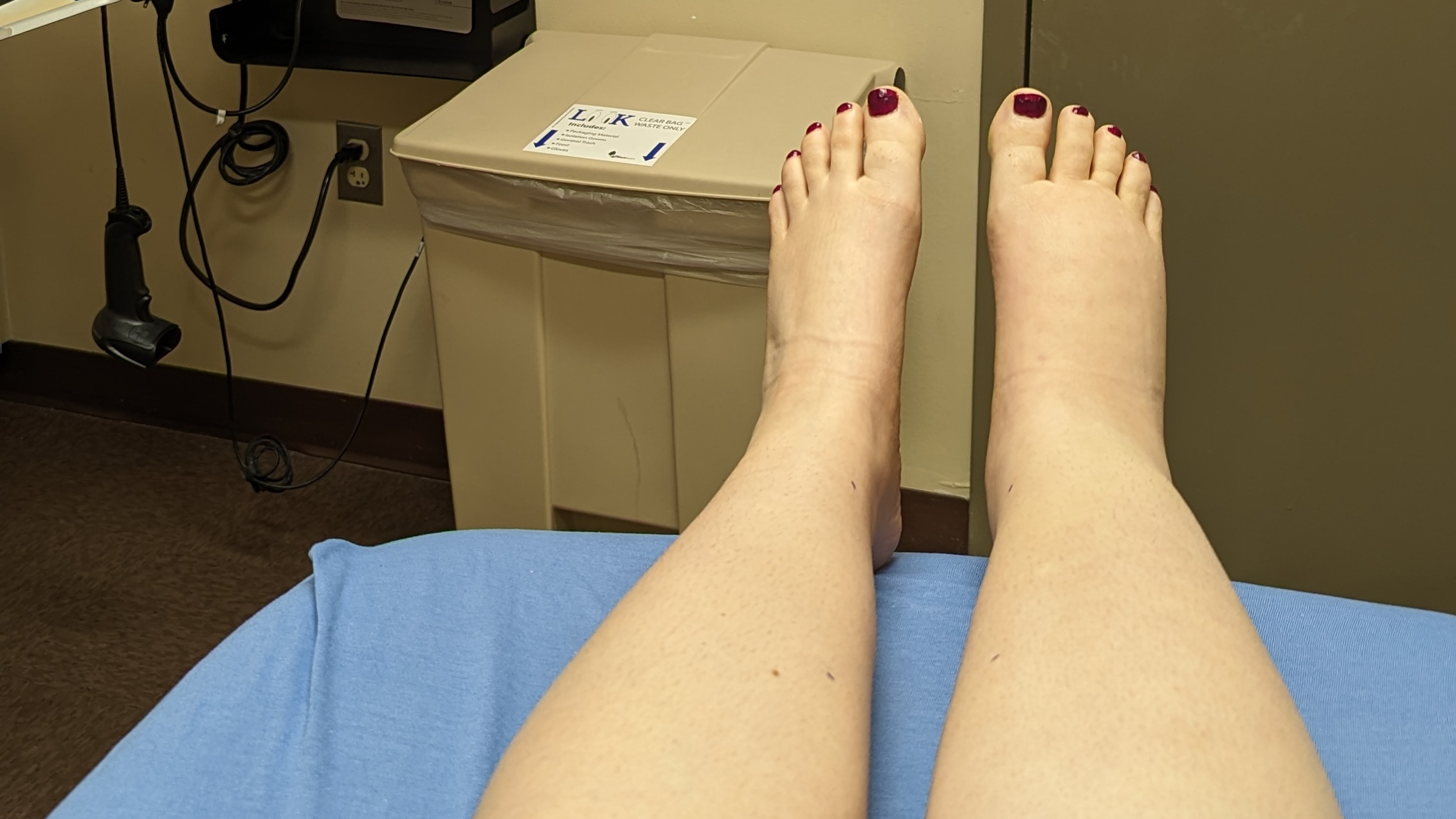When I was in treatment for my eating disorder, the doctors warned me that I may experience edema as a side effect of the “re-feeding process,” meaning I may have some swelling in addition to the chronic swelling I already had with lymphedema. I was scared, because I thought it would permanently affect my leg – both of them, even – and make things worse. I didn’t realize at the time that edema and lymphedema aren’t necessarily overlapping conditions.
So what exactly delineates the two? Both lymphedema and edema are conditions that involve swelling, but they have different causes and therefore need different treatment.
Check out this chart from LymphNotes.com:
| EDEMA | LYMPHEDEMA |
| Edema is the body’s normal response to an injury such as a sprain. As healing progresses, the excess fluid leaves the area and the swelling goes down. | Lymphedema is condition that occurs when the lymphatic system is impaired to the extent that the amount of lymphatic fluid within a given area exceeds the capacity of the lymphatic transport system to remove it. |
| Edema is usually caused by excess tissue fluid that had not yet returned to the circulatory system. | Lymphedema is swelling caused by excess protein-rich lymph trapped within the tissues. |
| Edema due to an injury, such as bumping into something, is caused by additional tissue fluid coming into the area to help with healing. | Lymphedema impaired tissues respond to injury with slow healing and/or a potentially serious infection. |
| Edema is also caused by circulatory system problems, such as chronic venous insufficiency, and this swelling usually occurs in the lower areas of the body. | Lymphedema is caused by damage to the lymphatic system and this swelling occurs near the affected area. |
| Edema swelling does not leave a mark when a finger is pressed into it. This is known as nonpitting edema. | Lymphedema swelling leaves a mark when a finger is pressed into it. This is known as pitting edema. This occurs only in the early stages of lymphedema. |
| Edema due to some causes can be relieved with diuretics. | Lymphedema is harmed, not helped, by treatment with diuretics. |
Chart above is credited to LymphNotes.com.



Leave a Reply to Samantha M. WhiteCancel reply